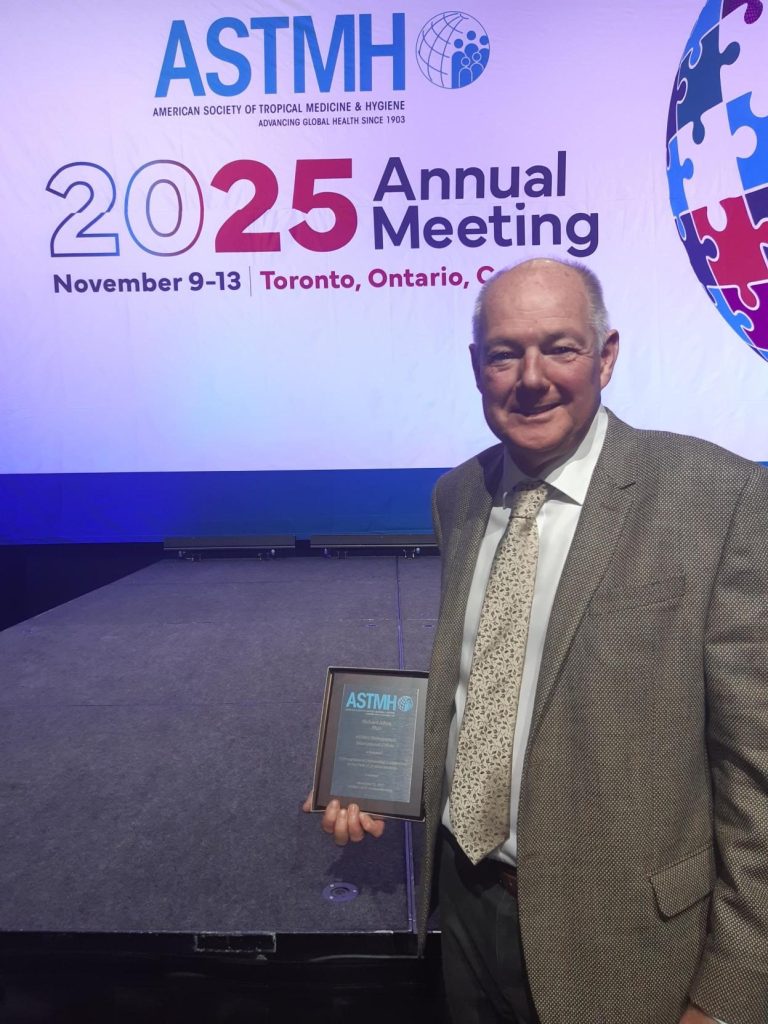The MENTOR Initiative founder and chair Richard Allan OBE was awarded an ASTMH Distinguished International Fellow by the American Society of Tropical Medicine and Hygiene (ASTMH) at their recent annual meeting in Toronto.
This award recognises “individuals who have made eminent contributions to a particular aspect of tropical medicine and global health…leaders in their field, making seminal contributions over their career, typically over decades, as evidenced by research and publications, clinical acumen, public health policy, and/or education.”
Richard founded MENTOR in 2002 to meet the urgent need for agile, responsive and effective integrated vector management in humanitarian settings. The first programme he developed tested Insecticide Treated Plastic Sheeting (ITPS) in a camp for refugees from Liberia in Sierra Leone to control malaria in children.
He led the organisation for 21 years implementing life-saving programmes and research that has enabled MENTOR to become one of the primary vector control agencies in vulnerable settings. Two years ago he became chair of the board role to focus on publishing research and leading on innovative field studies.
Throughout his career Richard has been dedicated to finding solutions that could address the high burden of vector-borne diseases in humanitarian crises.
Whilst he has mostly focused on vector control tools and solutions adapted to these settings, he also supported the introduction of Artemesinin Combined Therapies in some countries and pre referral rectal artesunate as a life-saving tool in emergencies.
His research and publications in the field of vector control in emergencies have been pivotal in shaping how humanitarian responses include the control of vector-borne diseases.
Richard’s work has supported the development of many innovative tools and strategies that later shaped policy development for effective disease control in humanitarian emergencies.
At the ASTMH meeting, Richard presented results from a more recent field trial of a vector control tool and spoke at two symposiums: ‘Spatial Repellents- A New Frontier in Vector Control Symposium’ and the ‘Spatial Repellents to Prevent Dengue and Malaria: From Active Ingredient Discovery to Policy and Rollout Evaluations’.

